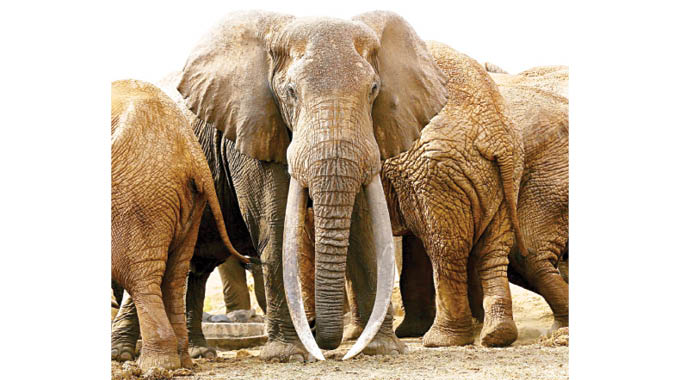
The 18th Meeting of the Conference of Parties (Cop 18) to the Convention on International Trade in Endangered Species (CITES) enters its 11th day in Geneva, Switzerland today.
Originally, the conference was set for Colombo, Sri Lanka from May 23 to June 3 this year but a bomb attack in the Asian nation on April 21 triggered its rescheduling on security fears. Therefore, the event was keenly awaited by Zimbabwe, Namibia, Botswana and Zambia who, for many months had been working to convince parties to CITES to vote in favour of the five Sadc countries’ proposal to reopen trade in ivory. Botswana, Namibia, Zambia and Zimbabwe are home to over 250 000 elephants — 75 percent of the world’s jumbo population. The regional herd had grown to a stage of overpopulation but because of stringent conditions imposed by CITES, the countries cannot freely harvest and trade in their elephants and its products, not only to bring their population to a more sustainable level but also to earn revenue to fund conservation programmes.
In many parts of Africa, elephants are protected under CITES Appendix I, which means that trade is only permitted under very exceptional circumstances. Zimbabwe, Zambia, Botswana and Namibia sought to have their elephants down-listed to Appendix II, a designation that allows a commercial trade in registered raw ivory with approved trading partners.
However, their proposal was defeated when it was put to a vote last week. One hundred and one delegates voted against it versus 23 who supported the motion with 18 abstentions. African countries, among them Kenya, Nigeria and Gabon, led in opposing the Sadc proposal. The three East and West African nations had the full backing of the West who have stridently opposed freer trade in elephants.
We regret the failure of the Sadc proposal at Cop 18. As we have always argued, the Sadc argument is very sensible and based on fact and experience.
The elephant population is so high in Zimbabwe, Namibia, Botswana and Zambia that it is actually militating against conservation efforts in the countries. In the case of Zimbabwe, there are more than 84 000 elephants for a carrying capacity of around 56 000 individuals.
Elephants, being bulky, heavy eaters are destroying the environment because of their grazing habits. They eat up vegetation in national parks and surrounding communal areas, drink up all the water available in the areas that are often in arid zones. This leaves other animal species with little or nothing to eat and drink. Since competition for grazing and water is increasing, human-animal conflict is increasing too in the four nations resulting in the jumbos eating farmers’ crops and in many cases trampling villagers to death.
Over the years, Zimbabwe has seen its ivory stockpile ballooning in value to US$600 million but because of CITES restrictions, the country cannot dispose of it. This is deeply unfair, ecologically destructive and illogical.
President Mnangagwa, speaking yesterday at the ground-breaking ceremony for the upgrading of a 6,5-kilometre stretch along the Harare-Chirundu highway financed by Japan, said he was unhappy with the Cop 18 decision. He said the Government was contemplating withdrawing from CITES to free itself of the encumbrances that are preventing it from trading in its elephant wealth to boost conservation efforts and the economy at large.
“We have our friends like Japan and China whom we can negotiate with to buy our ivory after we express our reservations with CITES,” said President Mnangagwa.
“We are sitting on ivory stockpiles worth US$600 million. It’s a lot of money we can use for big projects. Our wild animals are being discussed in Geneva (at the on-going CITES summit), an irrelevant place to the animals. We now know what to do about the issue. CITES is made up of people who have exhausted their wildlife resources and those who have managed to conserve them. Europeans have consumed all their animals, but they want to set rules for us who have managed to conserve ours. They bar us from killing our animals for selling ivory, but they want us to protect them from being poached. — We want the hides, ivory and other essentials to be sold so that we get money to invest in looking after the animals.”
He added:
“At the moment we have more than 84 000 elephants for a carrying capacity of around 56 000. We have an excess population of elephants, but they bar us from selling. Just the day before yesterday they were saying we cannot sell products from our wildlife, but we rejected that. We cannot be denied such a privilege by people who no longer have the elephants. They now know elephants from pictures and films. We also look forward to partnering with Japan to build greater resilience in our agriculture sector, and issues related to sustainable management of wildlife resources should be strengthened.”
The President is right to voice unhappiness at the Cop 18 decision. Going forward, we urge the Government and those in Zambia, Botswana and Namibia to respond in a manner that promotes their respective national interests, environmental conservation and economic benefits as the President said.
